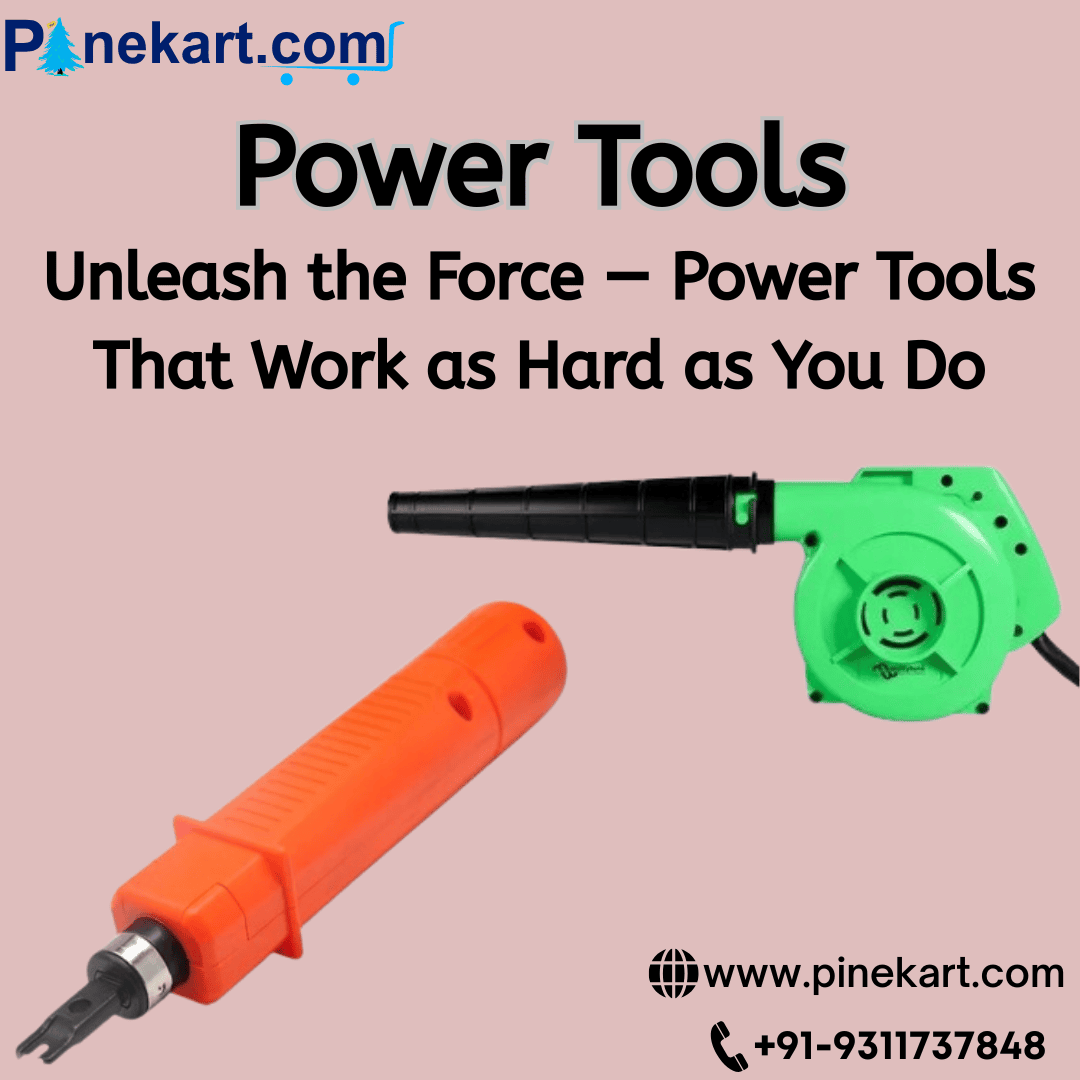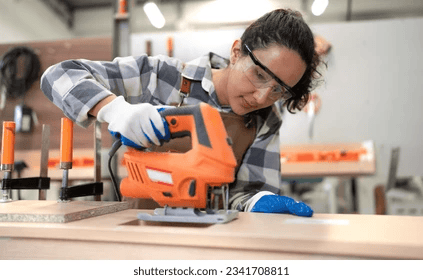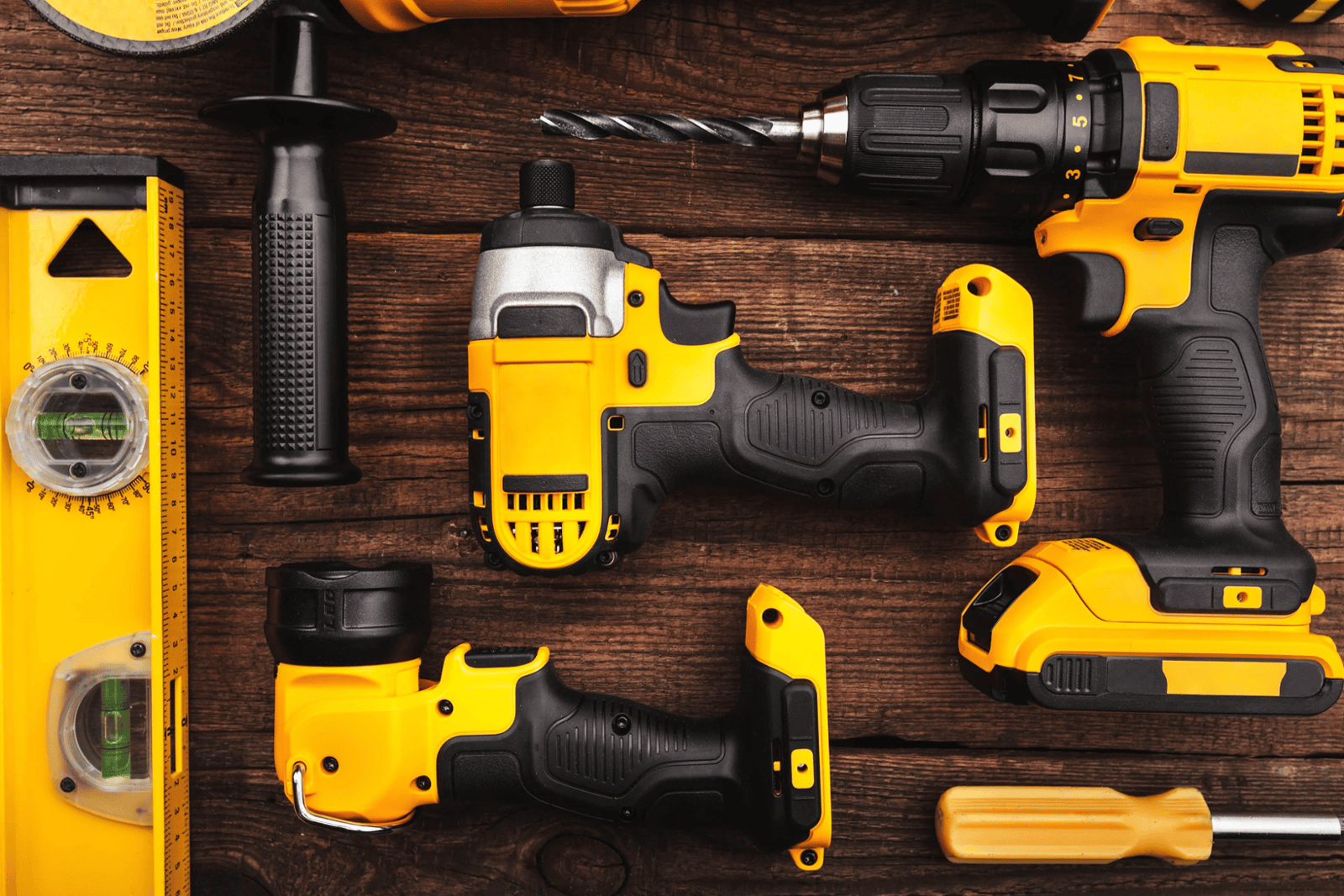Power Tools: Strength Meets Speed
Power tools are machines powered by electricity, batteries, or compressed air, offering more efficiency and less manual effort than traditional tools. From drills and grinders to electric saws and sandblasters, power tools are the backbone of modern construction, renovation, and repair work.
Benefits of Power Tools:
Time-saving and energy-efficient
Ideal for heavy-duty tasks
Delivers precision and power
Common power tools include:
Electric Drills
Angle Grinders
Circular Saws
Power Sanders
Heat Guns
Hand Tools: The Classics That Never Fail
Even in the age of automation, hand tools remain indispensable. They're simple, portable, and perfect for delicate or low-scale jobs that require a personal touch.
Must-Have Hand Tools:
Wrenches – for gripping and turning bolts
Hammers – from framing to finishing
Pliers – for gripping, bending, or cutting wires
Measuring Tape – precision in planning
Electronic Tools: The Smart Workers
Electronic tools bring intelligence and accuracy into your workspace. These tools work with electrical components and are mostly used in tech repair, engineering, or circuit development.
Examples:
Multimeters – for testing voltage, current, and resistance
PCB Testers
Oscilloscopes
Thermal Cameras
Screwdrivers: Small Tool, Big Impact
The humble screwdriver is possibly the most underrated yet most used tool in every home or workshop. Available in manual and electric variants, screwdrivers come in various shapes and sizes to fit a wide range of screws.
Types of Screwdrivers:
Flathead
Phillips
Torx
Hex
Electric screwdrivers take it a step further by offering speed and convenience, especially during repetitive tasks like furniture assembly or appliance repair.
Cutters: Sharpness Where It Matters
From cutting wires to slicing through plastic, a cutter is a must-have tool in any kit. Depending on the job, you can choose from:
Wire Cutters
Box Cutters
Cable Strippers
Utility Knives
Cutters are frequently used by electricians, network engineers, and crafters alike. Precision and safety are key here, so sharp blades and ergonomic handles are a must.
Soldering Irons: Joining with Precision
When it comes to electronics and circuit work, soldering irons play a crucial role. They’re used to join metal components together by melting solder — a fusible metal alloy.
Types of Soldering Tools:
Basic Electric Soldering Irons
Soldering Stations
Cordless Soldering Pens
These tools are ideal for:
Circuit board repairs
Wire splicing
Jewelry making
Always ensure proper ventilation and safety when working with soldering irons.
Build the Perfect Toolkit
No one tool can do it all — that’s why building a versatile toolkit is essential. A balanced collection of power tools, hand tools, electronic tools, cutters, and soldering equipment ensures that you're prepared for anything.
Pro Tip: Invest in quality over quantity. A few well-made tools will outlast and outperform a dozen cheap ones.
Frequently Asked Questions (FAQs)
Q1: What is the difference between power tools and hand tools?
A: Power tools are powered by electricity, batteries, or compressed air, offering faster and more efficient performance. Hand tools are manually operated and are typically used for more precise or smaller tasks.
Q2: Are electric screwdrivers better than manual ones?
A: Electric screwdrivers are ideal for repetitive tasks and save time, while manual screwdrivers offer more control and are perfect for tight or delicate spaces.
Q3: Can I use soldering irons for non-electronic tasks?
A: Yes, soldering irons can also be used for jewelry making, metal crafts, or small repairs involving soft metals, not just electronics.
Q4: What are some safety tips for using power tools?
A: Always wear safety goggles and gloves, use the tool as instructed in the manual, and keep your workspace well-lit and clutter-free. Also, unplug tools when not in use.
Q5: How do I maintain my cutters and pliers for long-term use?
A: Clean them after every use, oil the joints occasionally, store them in a dry place, and sharpen the blades when needed.
Q6: What electronic tools are essential for beginners?
A: A basic multimeter, soldering iron, wire cutter, and PCB tester are great starting tools for beginners in electronics.
Conclusion
The world of tools is vast, and knowing which ones to use for which tasks can be empowering. Whether you're drilling through concrete, fixing a faulty circuit, or crafting a delicate DIY project, the right combination of tools can elevate your skills and confidence. From power tools to screwdrivers, and cutters to soldering irons, each tool has its unique place in your toolbox.



